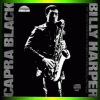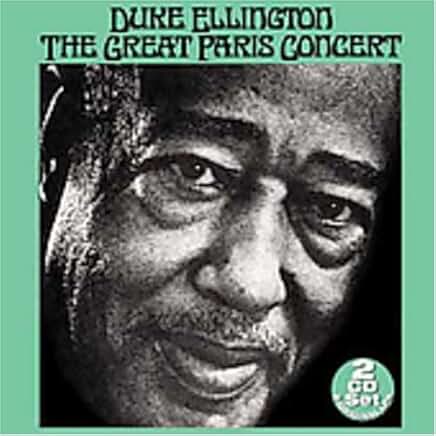All Activity
- Past hour
-
-
What Classical Music Are You Listening To?
Peter Friedman replied to StarThrower's topic in Classical Discussion
-
Yep. Warner Bro's jacked Black Sabbath, and they were 200k in debt by the time they recorded Sabbath Bloody Sabbath, so Black Sabbath named Sabotage to revenge WB after they jacked them. IMO right behind Master of Reality, Sabotage is my favorite record by them. The band kinda had a f*&k it attitude and put out their best record. Interesting how the quality dropped after that, their first real clinker, right after Sabotage in 1976: Never Say Die was a little better, but nothing like the first six records
-
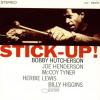
What Classical Music Are You Listening To?
HutchFan replied to StarThrower's topic in Classical Discussion
Disc 2 - Roussel: Syms. Nos. 2 & 3 -
Charles Mingus: Mingus In Europe. Enja Records ENJA CD 3077 [Germany 1988] Personnel: Clifford Jordan (ts), Eric Dolphy (as, fl, b-cl), Jaki Byard (p), Charles Mingus (b), Dannie Richmond (dr) Recorded live in Germany at Wuppertal Townhall April 26, 1964
-
Apologies. I jumped in mid-thread. I suppose that we are guilty of painting with broad brushes of our own choosing. And while we agree as to the merit and substance of Tony's playing, and others don't, an undeniable fact is that yes, they were pioneers in creating the heavy metal genre. They found/created an audience and ultimately reaped the incredible riches that go with the "product" that they made (management and record labels actually stole most of their money for years). Having worked in retail, music is viewed as product. Give the people what they want. Iommi/Winter is an apple/orange comparison of sorts, but I was speaking to artists who tend to work within the 'simplistic" pentatonic scale. The vast majority of iconic classic rock solos are firmly rooted in the pentatonic scale (Free Bird!). I suppose my issue was what I read as a broad dismissal of guitarists who tend to rely on the pentatonic scale. I would say that they Tony and Johnny both have considerable chops- in their own different way. Then again, take BB King, perhaps the most economic soloist who famously "says more in one note than other guitarists say in a thousand." I wouldn't say that BB has "chops" in the way that the word is typically used, but what he did use he was a master at it. His five-note box blended major and minor pentatonic scales, but he often worked with a five-note framework. It's not the size of the scale- it's how you use it.😉
-

What Classical Music Are You Listening To?
HutchFan replied to StarThrower's topic in Classical Discussion
More Brahms: One of my desert-island discs. -

What Classical Music Are You Listening To?
mjzee replied to StarThrower's topic in Classical Discussion
Riccardo Muti - The Complete Warner Symphonic Recordings, disc 87. Works by Johann Strauss II and Eduard Strauss. - Today
-
Rhoads is more like the electric guitar virtuosity I used to admire listening to the radio in the 80's. Yes it's licks and tricks but it's damn fooking impressive nonetheless.
-
Back to Ozzy, I am going to talk about Randy Rhodes. I believe that Ozzy got a windfall with Randy, that dude is/was one of the best things to happen to Ozzy, when he started his solo career. I don't know how anybody can argue that Randy Rhodes wasn't a guitar genius. When he died, ironically, not a rock 'n 'roll death, a plane crash, Ozzy was devastated, and he could never really recoup after he died. I credit Randy as much as Ozzy for Blizzard and Diary of a Madman's success (not the genuis lyrics Geezer penned for Black Sabbath) but the musicianship, wow! and Ozzy was on his game, and that has to be credited to Randy Rhodes. Randy gave him a new life, a breath of fresh air; that's when Ozzy became Ozzy.
-
@greggery peccary I agree, you seem to have replied in a way that has made it look like I said what another poster actually said and therefore misattributed @Stompin at the Savoy views to me. I see that they responded to your points anyway. I was professing support for Iommi's playing and skills.
-
Okay, agree to disagree. Kinda glad Randy Rhodes hasn't creeped into the conversation yet 😁
-
So, are you impressed by this? He says it's a "jazzy solo" but it's a memorized passage and you can go to a guitar store and hear people playing as well or better every day. Okay this is probably not leading to edification so I will shut up.
-
Saw him live once in the mid-70's with his quartet/quintet (forget which) and Esther Satterfield at one of the venues in Fairmount Park. Really good show from what I remember.
-
Tony Iommi unplugged:
-
I've been playing guitar since around 1968 and I'm pretty familiar with guitar blues licks and all that. Not that I am any great shakes after all these years. I think what is really going on here is Iommi has a sound, that metal electric guitar sound, and was a pioneer with this sound. I will certainly go that far - he is good at that sound and a certain rough-hewn attitude in his playing. But that sound is mostly settings on the guitar, amp, and perhaps some signal processing devices in the chain. If you took off all the amplification and distortion and whatnot and he just played the same thing on an acoustic guitar, there would be very little to it. I can in most cases easily play the pentatonic riffs he is playing - it's not hard stuff. Doubtless I cannot play those same notes on an electric and get his sound but then again I don't want to. These guys are not famous for beautiful melodies, musicality, or memorable lyrics; they are famous for a kind of melodic and rhythmic minimalism coupled with a loud, vaguely menacing, sound, along with campy showmanship and costumes... IMO. Johnny Winter, btw, is a whole different thing and really has guitar chops.
-
Can't agree more when it comes to translations. Martin Heidegger's Being and Time is a pinnacle example. This translation, which Heidegger did not assist the translaters is notoriously misunderstood because Heidegger wrote in this extinct German dialaect, which comfounded a translation for nearly 30 years, when this translation was finished in 1960: Finally in the 1970's shortly before his death in 1976, Heidegger assisted Joan Stambaugh to retranslate Being and Time in what I believe is the definitive edition.
-
...is a juggernaut. Like Kant's Critique of Pure Reason, I had to live with this book for years (under the direction of Tom Rockmore no less!) to truly understand what is being said. Like Kant, Peirce, Aristotle, Heidegger, Husserl, I had to live with Hegel, to understand Hegel.
-
❤️ 👍
-

What Classical Music Are You Listening To?
HutchFan replied to StarThrower's topic in Classical Discussion
-
Yes, he speaks about Django in this interview.
-
Tony's playing was blues based and thus was typically rooted in blues and pentatonic scales and their various boxes/patterns. And you are right about to each your own, but I think that to dismiss Tony's pentatonic riffs as "simplistic" sells him short as a guitar player and reinforces the "snooty" label that is associated with many jazz aficionados. To cite players from other genres as influences need not mean that they can be overtly heard in copped licks or whatever. Django Reinhard was an influence because Tony lost the fingertips on his left hand in an industrial accident. Thus Reinhardt was an inspiration in helping Tony to believe, and figure out a way to overcome an obstacle which would have stopped most in their tracks. Another pentatonic/blues based player who comes to mind is Johnny Winter. As with many jazz musicians, he had an endless well of licks and ways to twist and turn those "simplistic scales" into statements with as much value and feeling as those of Coltrane, Miles, et al. I would also add that the technical proficiency that Tony and Johnny, and countless others, apply to their simplistic "simplistic pentatonic riffs" embodies it's own sort of magic. I don't know if you're a guitar player, if so I encourage you to sit down and learn a couple of their solos note for note. On a separate note, listen to the album "Sabbath Bloody Sabbath." That record found the songwriting and arrangements operating at a different level. It's not likely to convert you but could certainly be worth forty minutes of your time. In my opinion they are both monsters in their own right and we will clearly have to agree to disagree on this. Ah, the subjectivity of art and music. Respectfully submitted.
-
_forumlogo.png.a607ef20a6e0c299ab2aa6443aa1f32e.png)
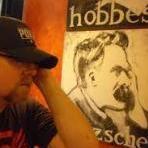
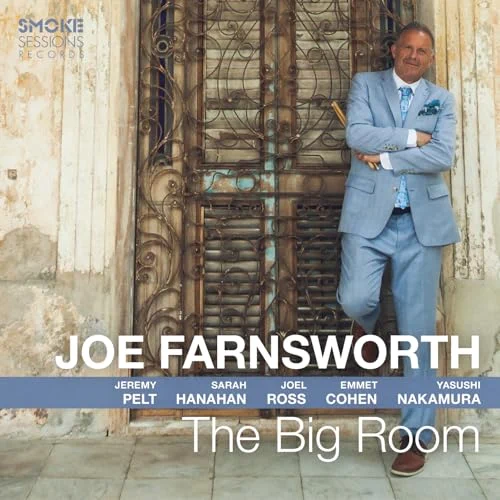
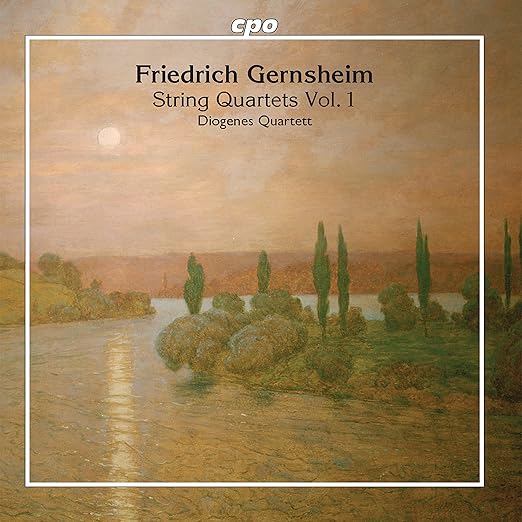
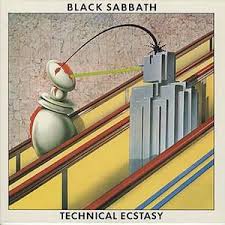
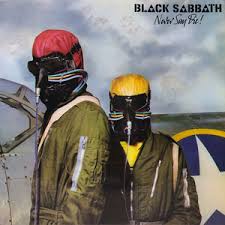
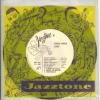
.jpg.df55c1c4cee5269e5f3334cc623891e6.jpg)
